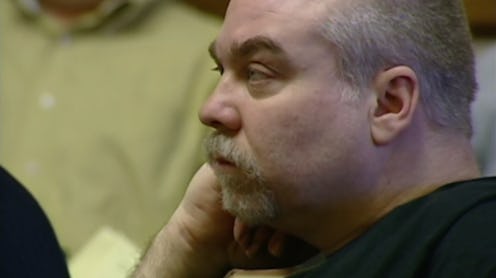
Though the new Netflix docuseries is available to viewers everywhere, subject Steven Avery hasn't watched Making a Murderer in prison, directors Moira Demos and Laura Ricciardi told the Television Critics Association Sunday. Avery has served nearly a decade in prison for the murder of Teresa Halbach, a case whose trial is documented closely by the series. The show has sparked outrage toward Avery's imprisonment by highlighting the gaps in the evidence against him, but has also attracted numerous critics who claim that it's an example of biased "advocacy journalism." During the half-hour panel discussion, Demos addressed the criticism:
We don’t consider this advocacy journalism. It’s a social justice documentary. [Steven] Avery’s case offers a window into the system.
Ricciardi followed up by explaining the directors' true intentions while creating the series:
We are trying to urge people to think more deeply what the series is about … and making sure our justice system is delivering verdicts we can rely on.
Steven Avery is the only man who knows the truth for certain, but he has no more than an inkling as to how the series has affected Americans, who have passionately taken sides in his case. Despite requests to view the documentation of his trial, he has been denied access to the series. However, he has been in contact with the two directors since the show premiered on Netflix.
During the filming of the series, Demos and Ricciardi were not allowed to speak to Avery directly. Instead, they recorded conversations between Avery, who was being held in jail at the time, and his family members. Now, the two women claim that they have recently been speaking with Avery, and have recorded the conversations. They hint at a second season of the show, given newfound interest among the public as well as developments in the case. Speaking to the TCA, Demos explained that they're still gathering material for the series:
This story is ongoing. These cases are open. We are ready to follow these if there are significant developments.
Additional insights have surfaced since the series premiered on December 18. Last Wednesday, Avery's ex-fiancee Jodi Stachowski was interviewed by Nancy Grace producer Natisha Lance. During the interview, Stachowski claimed that her support for Avery during the filming of the show was forced and fabricated. Prior to the completion of the series, Demos and Ricciardi asked Stachowski if she would like to be interviewed again. Until last week, she remained silent.
Shortly after the series aired, a juror came forward and claimed that votes were traded during the trial. His account largely contributes to the possibility of a new trial for Avery. The filmmakers were contacted directly by the jury member. Ricciardi recalls their statement:
[The juror] told us that they believe Steven Avery was not proven guilty. They believe Steven was framed by law enforcement and that he deserves a new trial, and if he receives a new trial, in their opinion, it should take place far away from Wisconsin.
If they do decide to create a second series, Demos and Ricciardi already have a fairly large collection of new material that will add to the complexity of the case. Avery's own conversations with the directors, along with his opinion of how people are reacting to the show, would be an especially compelling element.